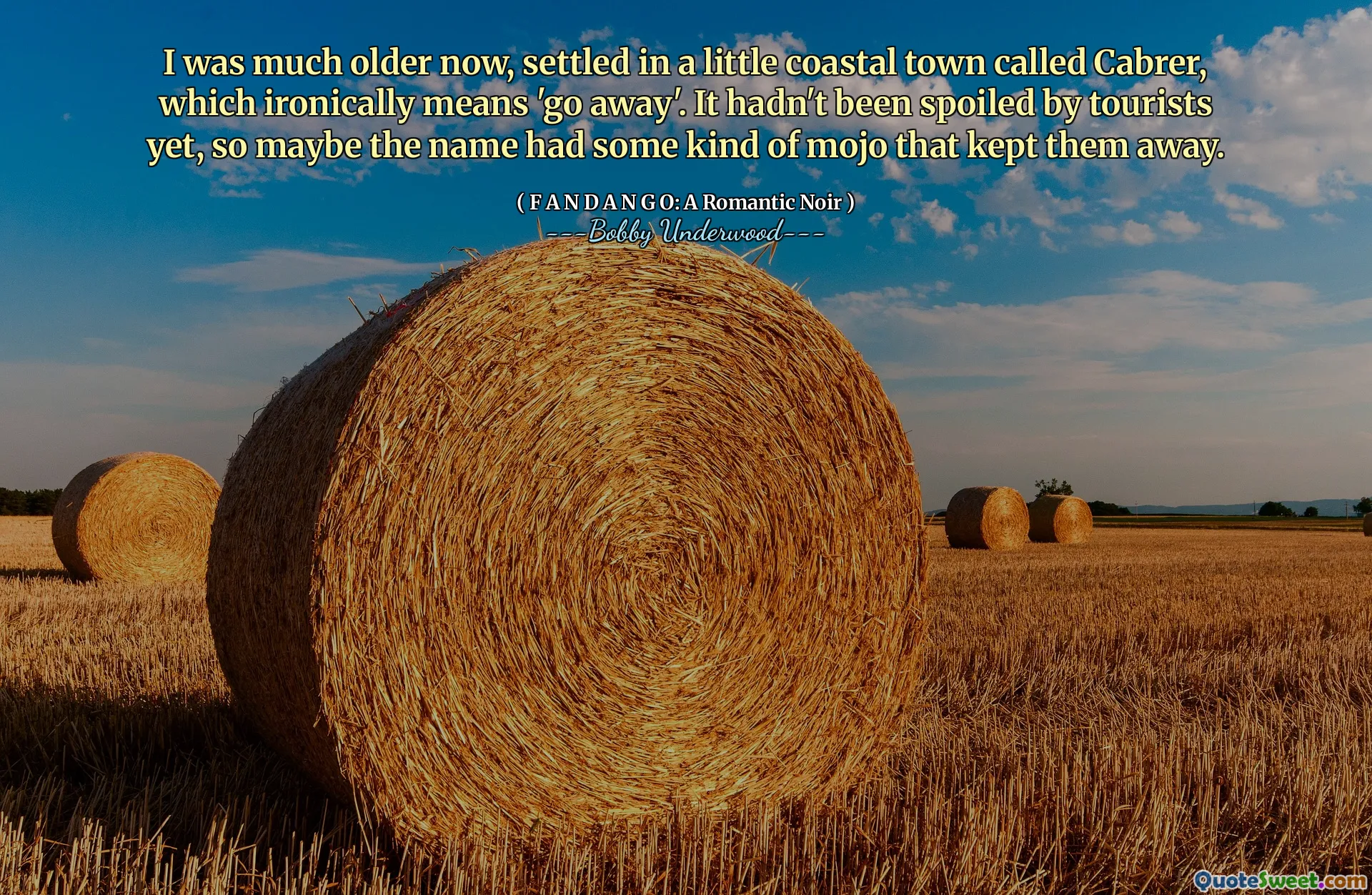
I was much older now, settled in a little coastal town called Cabrer, which ironically means 'go away'. It hadn't been spoiled by tourists yet, so maybe the name had some kind of mojo that kept them away.
The quote presents an intriguing paradox that immediately captures the reader's attention—the town called Cabrer, which translates to 'go away,' seemingly embodies the very essence of what it promises. There's a sense of quiet irony in the name juxtaposed with the current state of the town, suggesting a place that retains its purity due to its unwelcoming label or perhaps its unadorned authenticity. This evokes themes of destination branding and the power of perception; sometimes, the name a place bears can influence its fate more than its actual qualities. The speaker's reflection adds a layer of nostalgia and insight, hinting at a desire for refuge or a retreat from the chaos of modern life, symbolized by the fact that the place remains untouched by tourist crowds. There's an undercurrent of sentiment that the town's identity as 'away' or 'off the beaten path' grants it a special kind of mojo—an unspoken charm that keeps it pristine and unspoiled. This also raises questions about how places sustain their charm and authenticity amidst commercialization and development pressures. The location, nestled in a coastal environment, suggests tranquility, natural beauty, and perhaps a longing for simplicity. The mention that it hasn't been spoiled yet speaks to the importance of preservation—not just of landscapes but of the character and spirit of small communities. Ultimately, the quote touches on the human longing for authentic experiences and the desire to find places that remain true to their essence, away from the influence of mass tourism or superficial allure.






